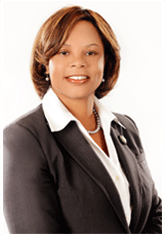ST. LOUIS – Current laws dictating police oversight when it comes to possible racial profiling lack teeth according to Sen. Jamilah Nasheed, D-St. Louis.
So along with the American Civil Liberties Union (ACLU) of Missouri, the Don’t Shoot Coalition and other community groups, she and Rep. Shamed Dogan, R-Ballwin, will file the Fair and Impartial Policing Act designed to hold police agencies and officers more accountable should they use biased policing practices.

“Transparency is the friend, not the enemy, of good policing,” Rep. Dogan said Monday at a ceremony in St. Louis. “The Fair and Impartial Policing Act will provide stronger analysis and the statistics necessary to recognize and applaud those who protect and serve all communities equally.”
Nasheed agreed, saying in a phone interview that the legislation was a “pro-police” measure, adding that it would “rebuild our community and our trust in law enforcement.”
The act would expand reporting requirements, track pedestrian stops, require training on biased policing and set standards for punishments when either these acts do not happen or when profiling occurs.
According to the 2014 Vehicle Stops Report from Attorney General Chris Koster’s office, profiling has occurred. In the report, Koster found that the disparity index, a metric which calculates proportionate vehicle stops divided by the proportion of a population or subset of a population, for both African-American and Hispanic drivers had both increased from 2013. Anything over a value of one means that given population is overrepresented in vehicle stops and potentially, though not necessarily, targeted for stops by police.
The disparity index for African-American drivers in 2014 hit 1.66, up from 1.59 in 2013, whereas the index for white drivers is .95.
“While statistical disproportion does not prove that law enforcement officers are making vehicle stops based on the perceived race or ethnicity of the driver, the compilation and analysis of data provides law enforcement, legislators, and the public with a starting point as they consider improvements to process and changes to policy to address these issues,” Koster wrote.
Nasheed and Dogan aim to make this legislation one that successfully enforces these rules.

“We had statutes in place with no teeth,” Nasheed said. “It’s an unfunded mandate. There’s no recourse for civilians or citizens who have been unjustly profiled. This would allow for civic action in the courts.”
On top of those punishments, if a police department or officer is found to be purposefully profiling, the officer could lose their job or the state could withhold funding as punishment.
Nasheed also urged that this legislation could help address not only possible profiling by police departments across the state, but unburden both St. Louis and Missouri of the racist stigma that has plagued it since Ferguson.
“Right now is the time to show the world that we can get it right,” she said. “We have a very serious problem in the state of Missouri and I think this is what is going to bridge the gap between the communities and law enforcement.
“Now is the time to get it right,” Nasheed concluded. “We’ve gotten it wrong for far too long.”












